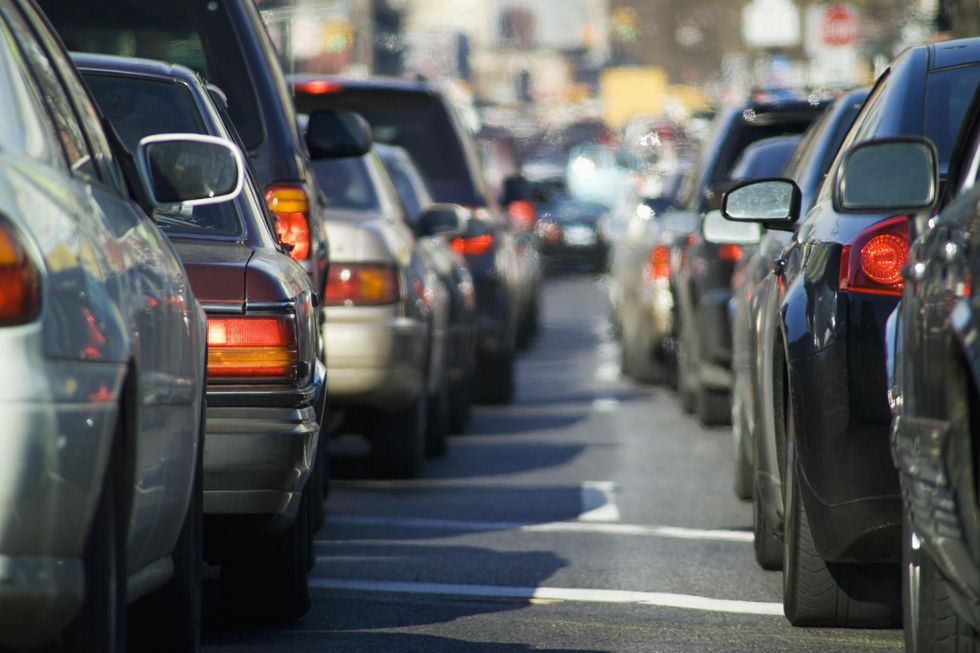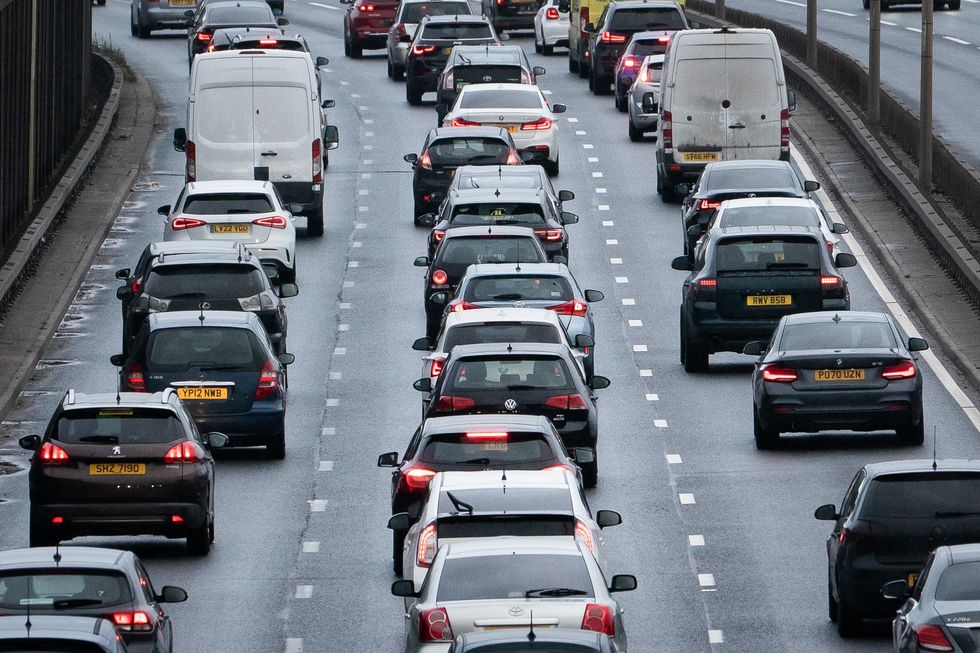Britons slam petrol and diesel cars for causing 'loud traffic' as electric cars could create 'peaceful' roads

More than a third of people reported losing sleep over the loud noises
Don't Miss
Most Read
Latest
Electric cars could be the solution to noisy traffic as more residents complain about sound disturbances near their properties from internal combustion engine vehicles.
Over 80 per cent of Britons are able to hear road noises around their property with one in seven adults saying they are unable to escape the sound.
More than a third of people surveyed reported losing sleep over the loud noises at night with over a fifth saying it impacts their mental health.
To combat the loud noises, experts have suggested that EVs could be the solution as they are much quieter.
Do you have a story you'd like to share? Get in touch by emailing motoring@gbnews.uk

EVs are estimated to be around 10 dB quieter than petrol or diesel equivalents
|GETTY
Battery electric vehicles are estimated to be around 10 dB quieter than petrol or diesel equivalents while at low speeds. Fuel-powered vehicles are roughly as loud as 10 electric vehicles, causing more disruptions in urban residential areas.
Rob Buckland, chief leasing officer at Gridserve, which commissioned the research, said: “Noise pollution in residential areas is impacting millions.
“Our focus on sustainable and innovative solutions, such as electric vehicle charging infrastructure and the development of eco-friendly transport alternatives, aims to mitigate the adverse effects of noise pollution.”
Meanwhile, 16 per cent of those negatively affected by vehicle noise on roads reported that it can even make their houses shake.
Elsewhere, two in 10 UK adults have resorted to double or triple-glazing their windows to keep the noise out, while seven per cent try to drown out the noise by playing music.
A further 17 per cent of people have to keep all of their windows and doors closed to reduce the level of noise.
One in 10 have had to turn to drastic measures such as using earplugs or defenders.
New cars produced since 2016 are legally not allowed to be louder than 72 decibels, with this limit expected to fall to 68 dB by 2026.
A freedom of information request, issued by Gridserve, found that in some cases the high level of noise prompted some Brits to complain to their local council.
The London boroughs of Sutton and Kingston Upon Thames were among the worst affected, having each received over 115 road noise complaints in 2023.
Buckland added: “The incessant hum of idling engines and loud traffic not only disrupts the tranquillity of our surroundings but also poses a serious threat to public health and well-being.
“By embracing cleaner and quieter modes of transportation, we can contribute to creating more peaceful and liveable urban environments.”
LATEST DEVELOPMENTS:
- Driving law changes being introduced in March could impact Britons - Car tax, number plates and more
- Elon Musk says new Tesla Roadster EV will hit 60mph in under one second - 'Never be another car like this!'
- Major car brand delays electric vehicles as drivers still want the 'feel and noise' of a petrol engine

Sutton and Kingston Upon Thames were among the worst affected for car noise complaints
|PA
It is also illegal to modify a car’s exhaust so that it is noisier than it was when it was type-approved. Motorists who want to make drastic changes to their car are advised to tell the DVLA and their insurance providers.











